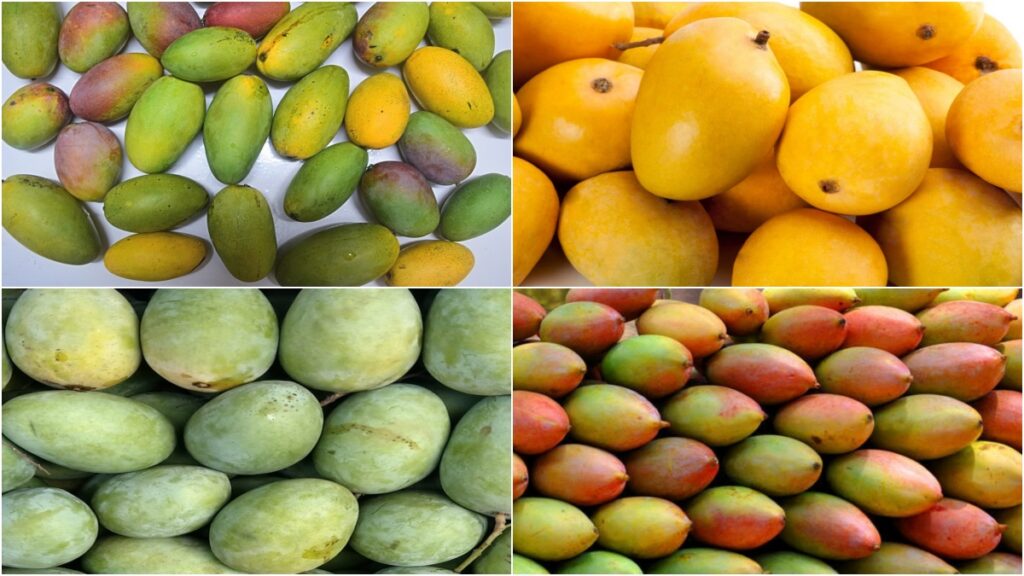India, often referred to as the “Mango King of the World,” boasts a rich diversity of mangoes, each with its unique flavor, aroma, and appearance. From the sweet and succulent Alphonso to the tangy Kesar, Indian mangoes have captivated taste buds worldwide. This comprehensive guide will explore the various types of mangoes cultivated in India, their distinctive characteristics, and their significance in Indian culture.

Major Mango-Producing Regions in India
- Maharashtra: Renowned for its Alphonso mangoes, considered the “King of Mangoes,” Maharashtra is India’s largest mango producer.
- Andhra Pradesh: Famous for the Kesar mango, known for its rich flavor and aroma.
- Gujarat: Produces a variety of mangoes, including Kesar, Banganapalli, and Kilichundi.
- West Bengal: Known for its Banganapalli mangoes, which are also popular in Andhra Pradesh.
- Uttar Pradesh: Produces various mango varieties, including Dashehari, Langra, and Chausa.
Popular Types of Mangoes in India
Alphonso: Considered the king of mangoes, Alphonso is known for its sweet, juicy flesh and delicate aroma. It is primarily cultivated in Maharashtra.
Alphonso mangoKesar: A popular variety from Gujarat and Andhra Pradesh, Kesar mangoes are known for their rich, sweet flavor and intense aroma.
Kesar mangoBanganapalli: A large, juicy mango with a sweet and slightly tangy flavor. It is widely cultivated in Andhra Pradesh and West Bengal.
Banganapalli mangoDashehari: A popular variety from Uttar Pradesh, Dashehari mangoes are known for their sweet and fibrous flesh.
Dashehari mangoLangra: Another popular variety from Uttar Pradesh, Langra mangoes are known for their sweet and juicy flavor.
Langra mangoChausa: A sweet and juicy mango with a slightly fibrous texture, Chausa is a popular variety from Uttar Pradesh.
Chausa mangoKilichundi: A small, sweet mango with a unique flavor, Kilichundi is primarily cultivated in Gujarat.
Totapuri: A large, juicy mango with a slightly acidic flavor, Totapuri is popular in South India.
Totapuri mangoBadami: A sweet and juicy mango with a slightly fibrous texture, Badami is a popular variety from Karnataka.
Badami mangoSindura: A small, sweet mango with a unique flavor, Sindura is primarily cultivated in Andhra Pradesh.
The Significance of Mangoes in Indian Culture
Mangoes hold a special place in Indian culture and are often associated with celebrations, festivals, and religious rituals. The mango is considered a symbol of prosperity, fertility, and abundance. The annual mango season is eagerly awaited in India, and mangoes are often enjoyed as a refreshing and nutritious fruit.
